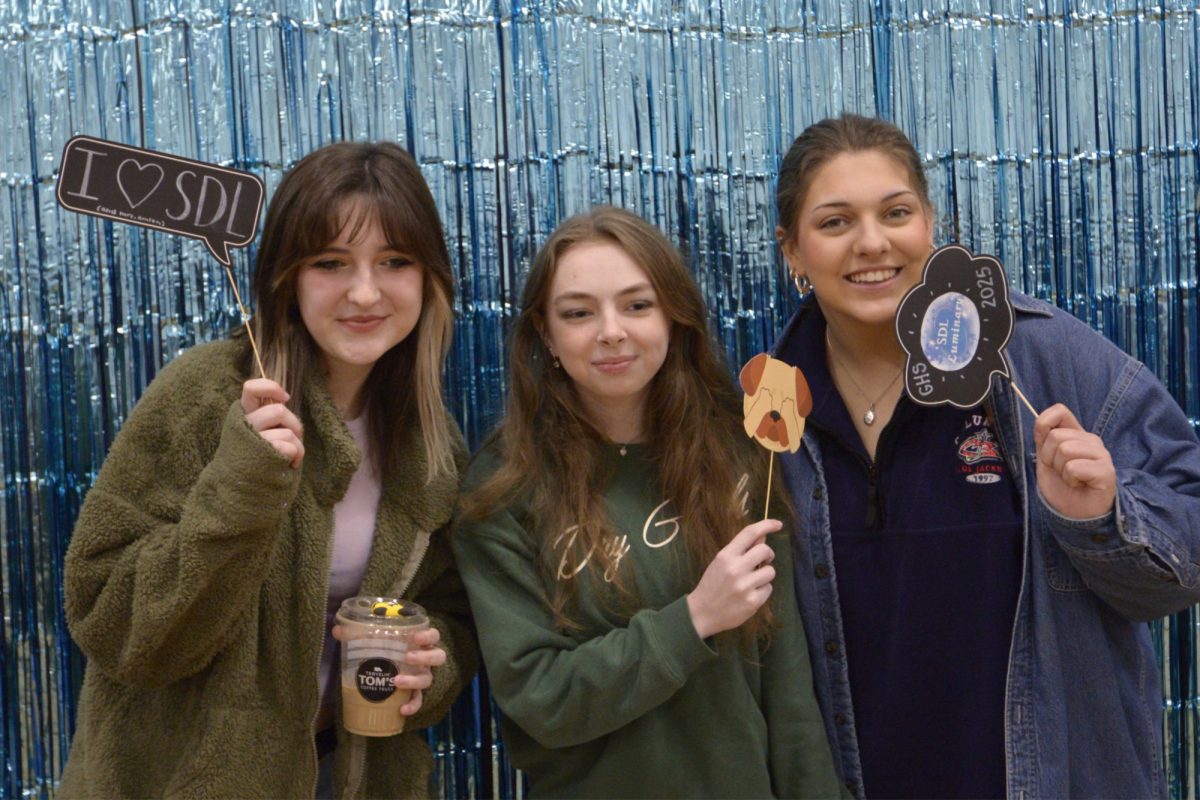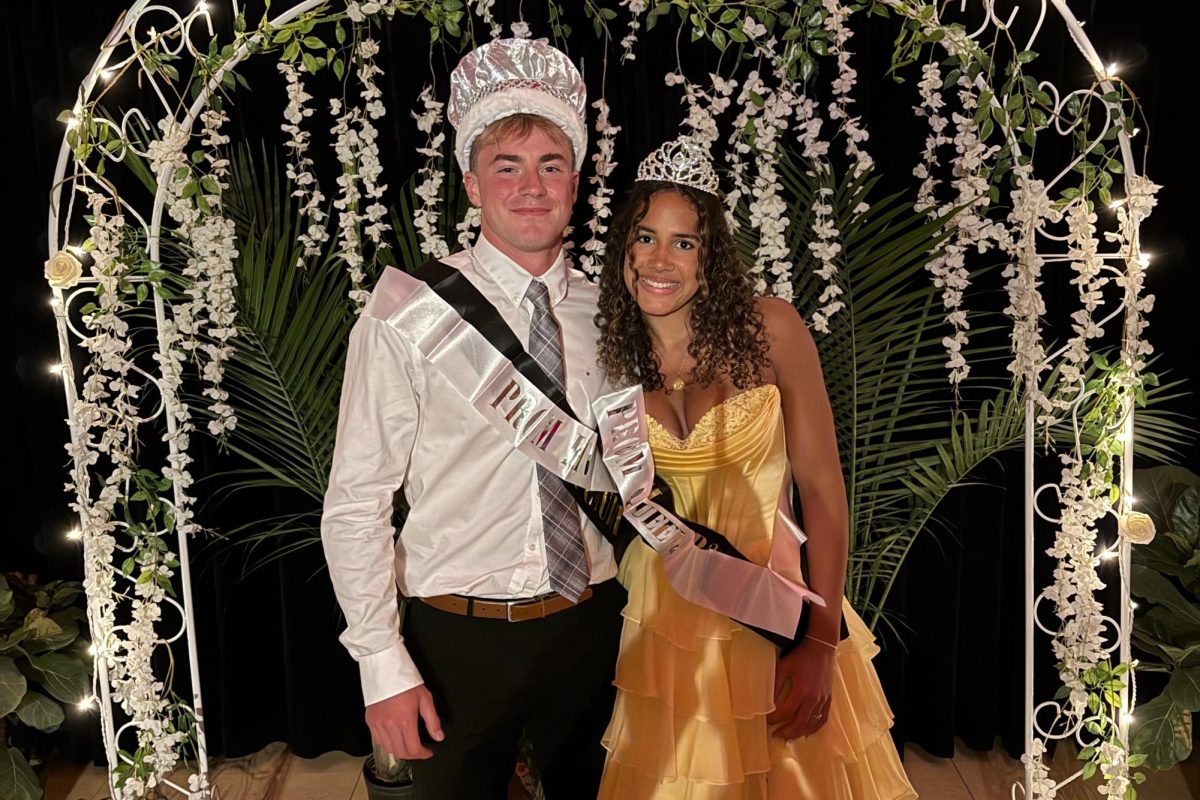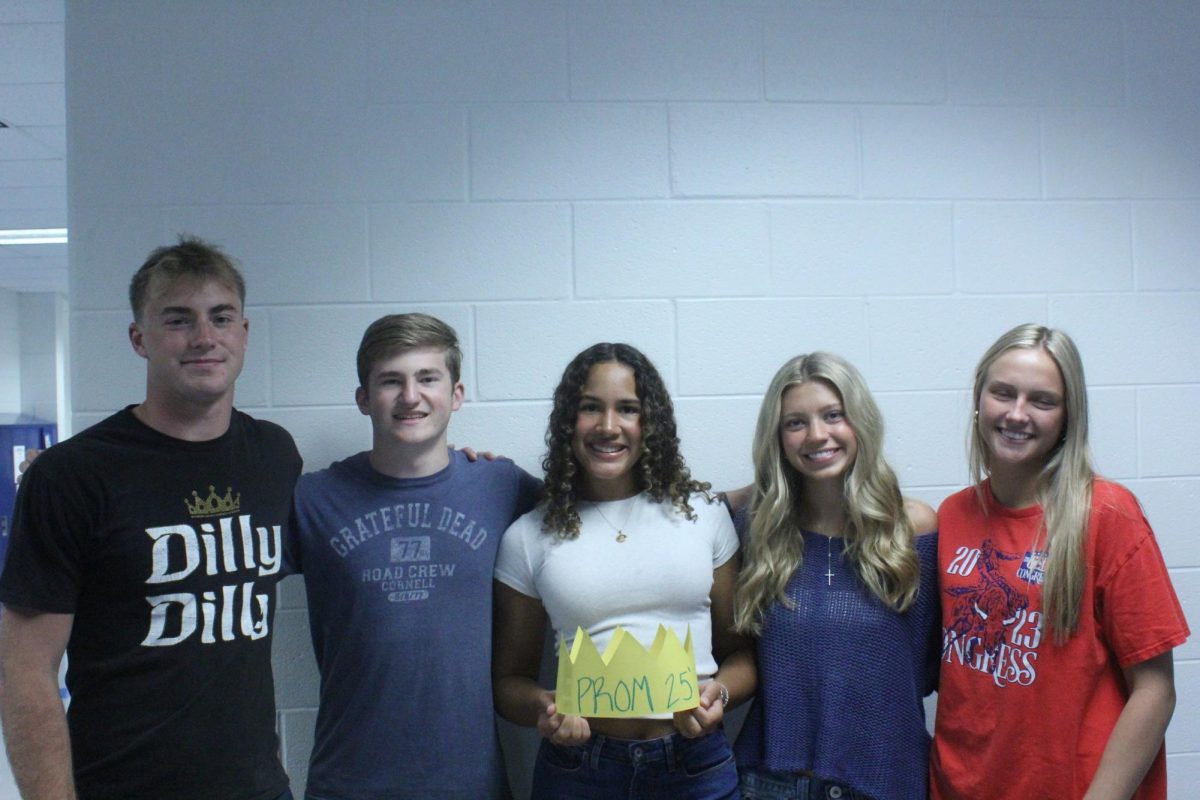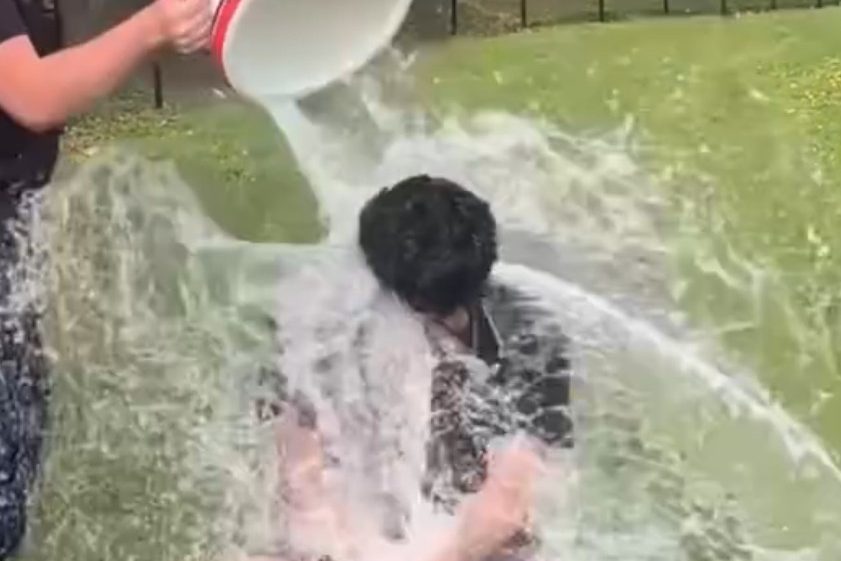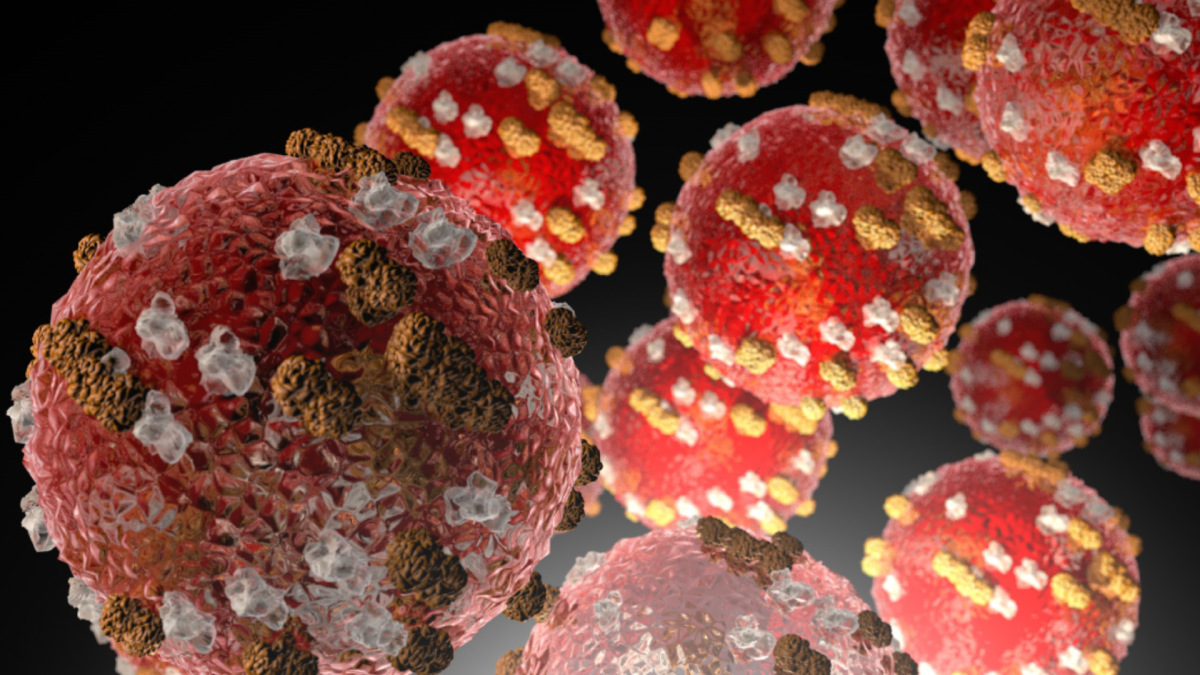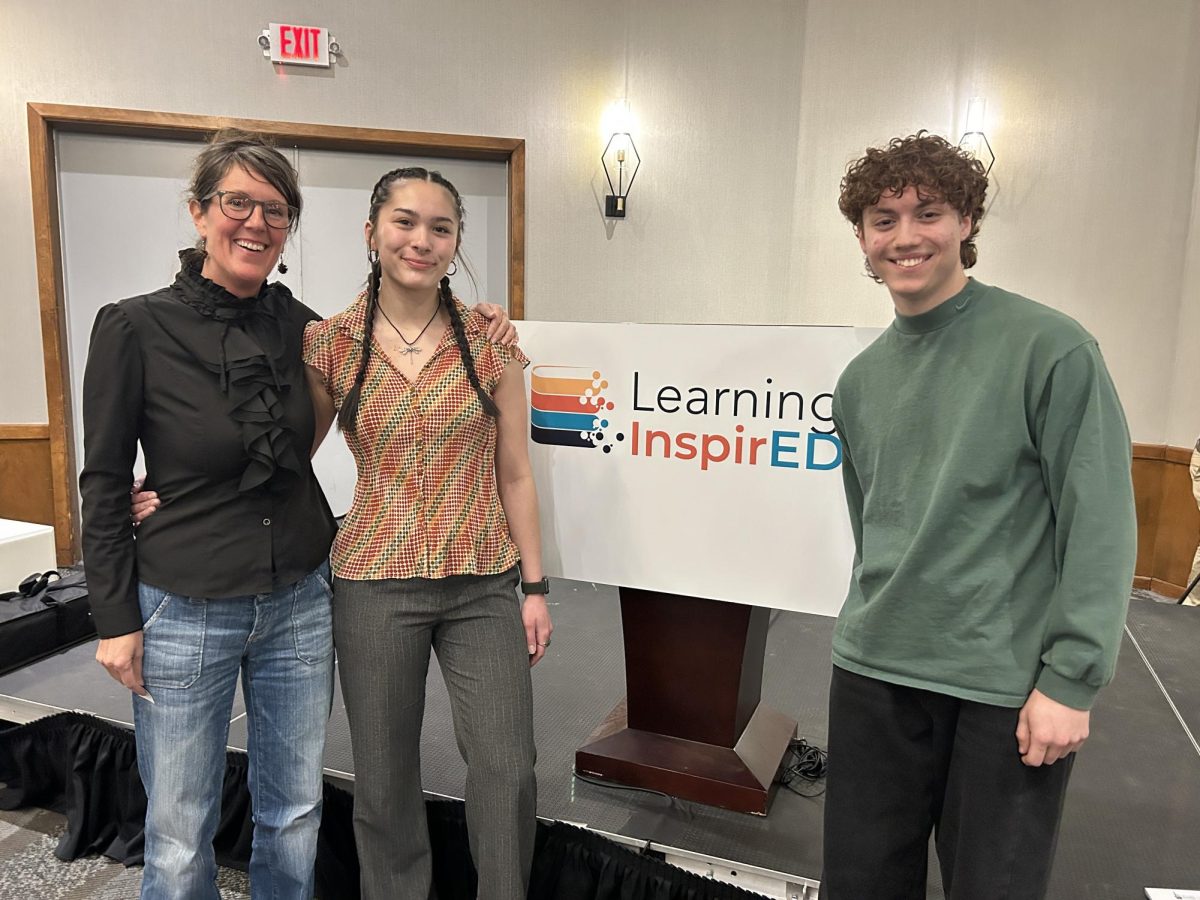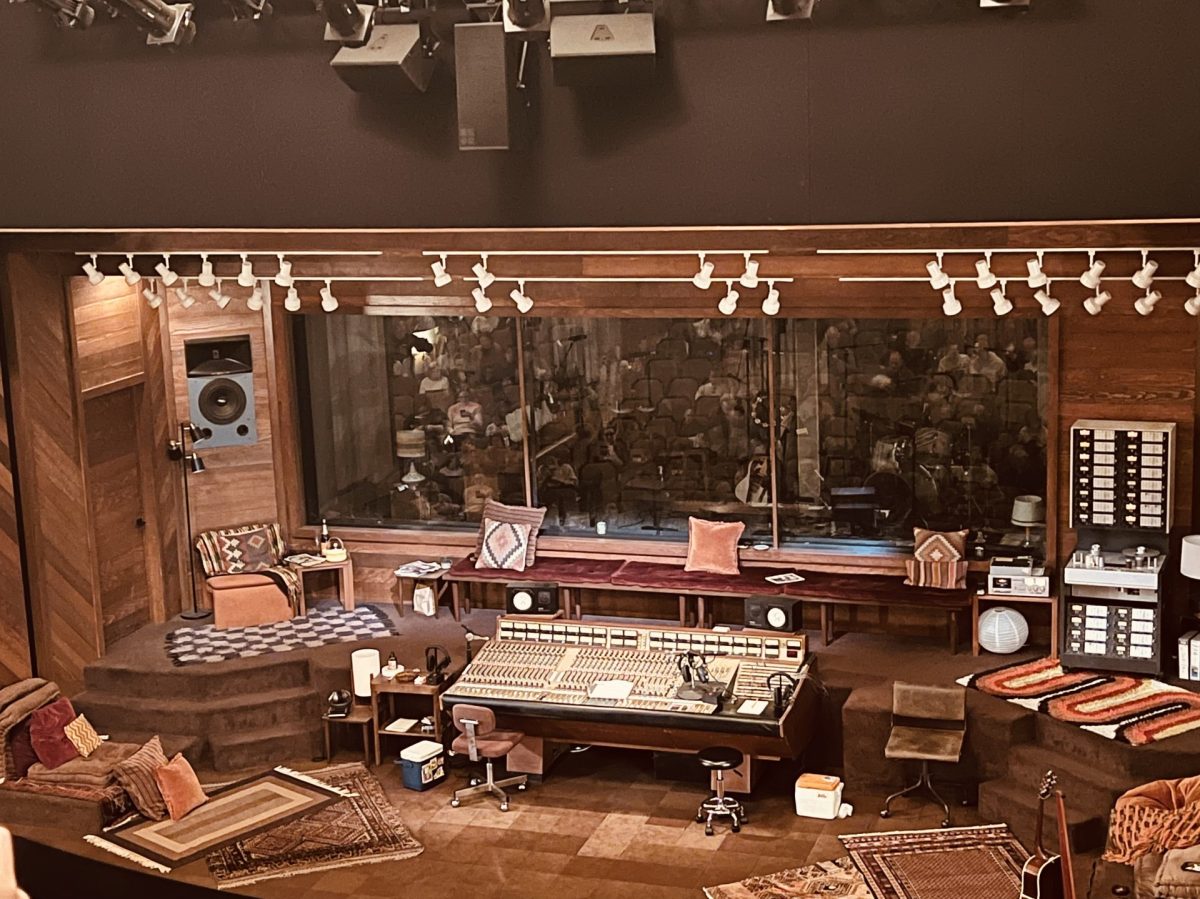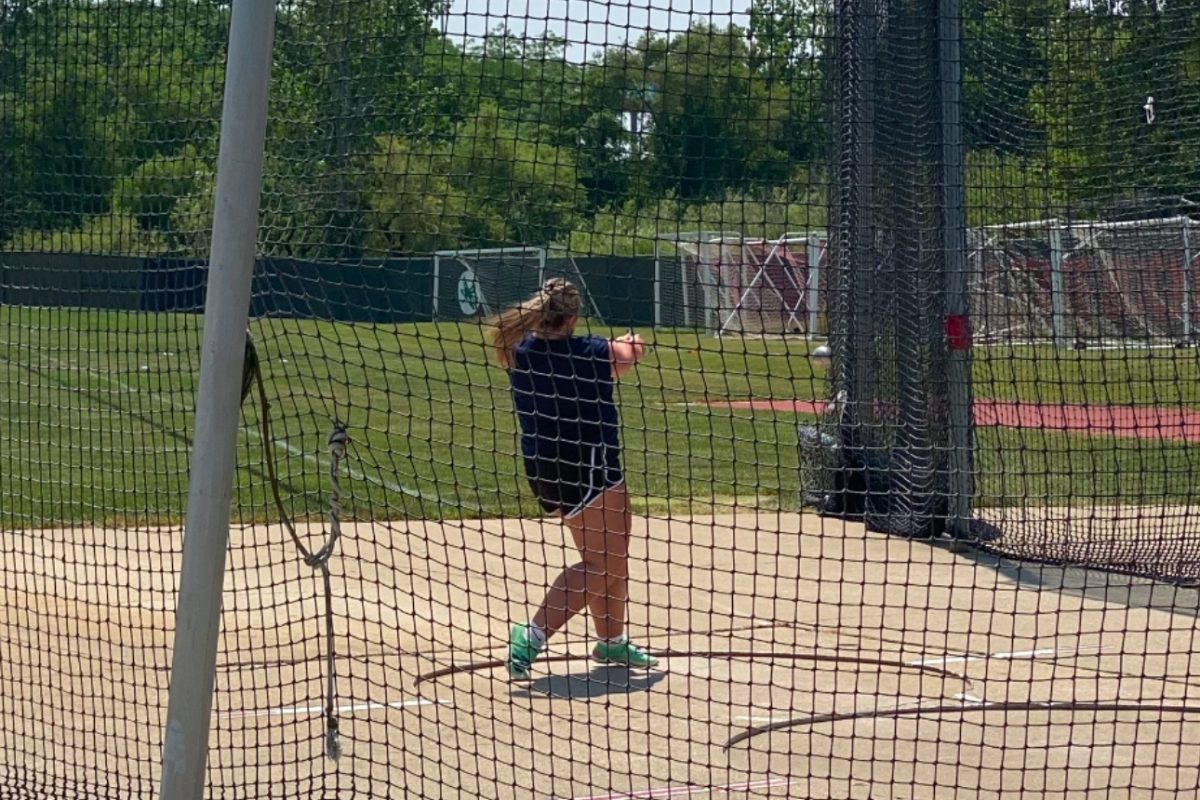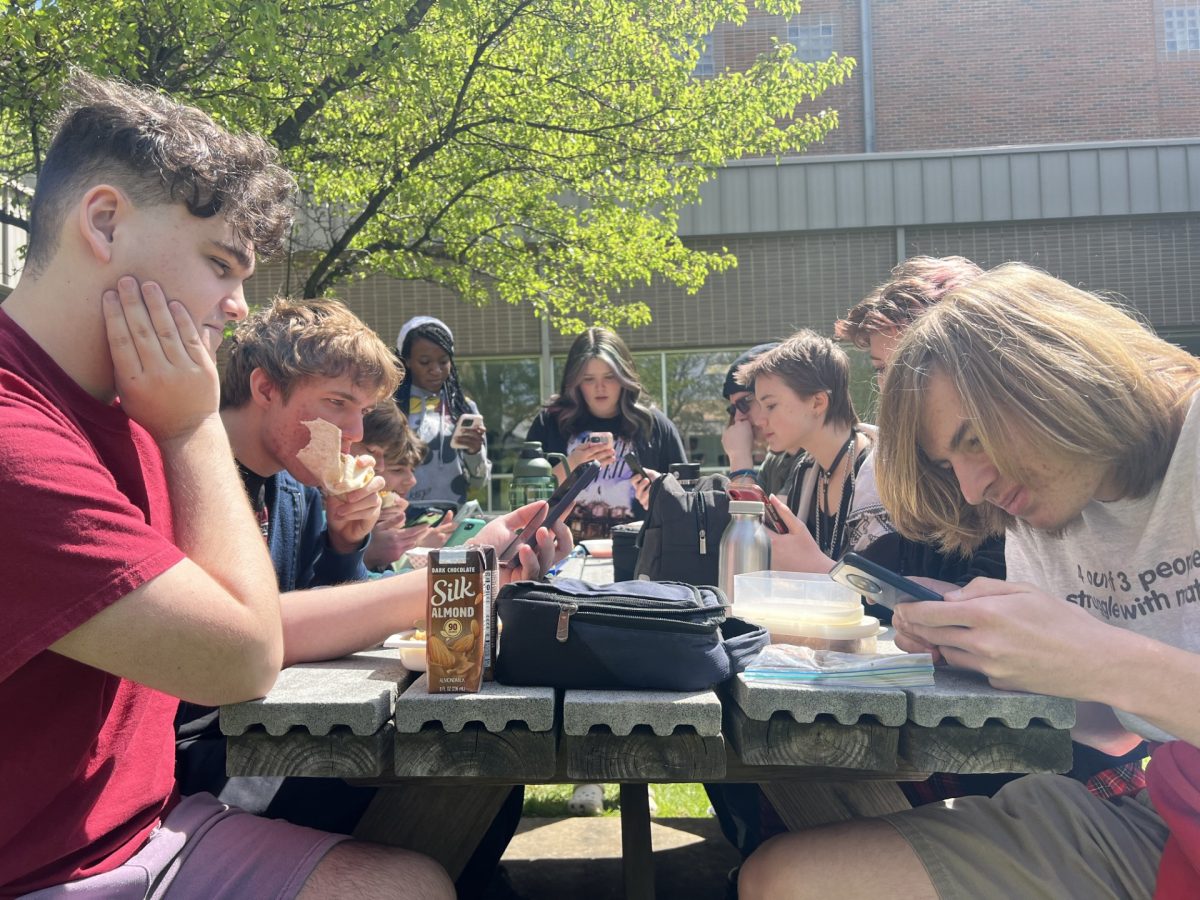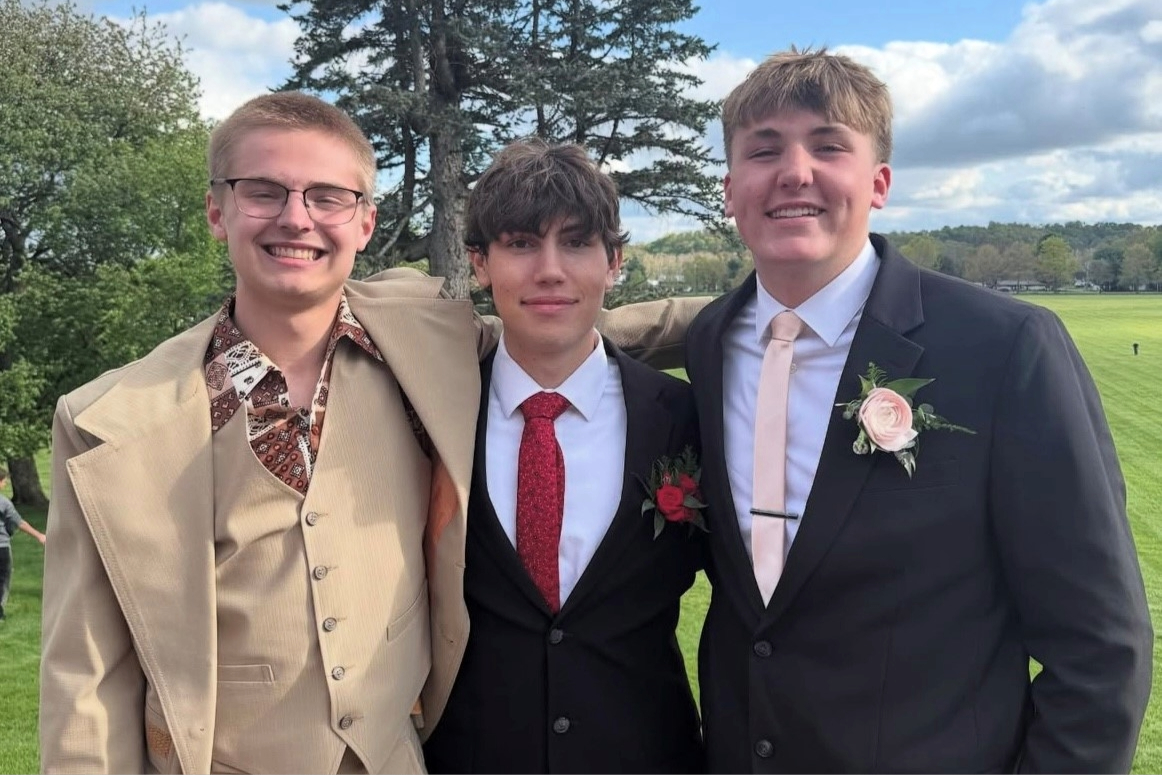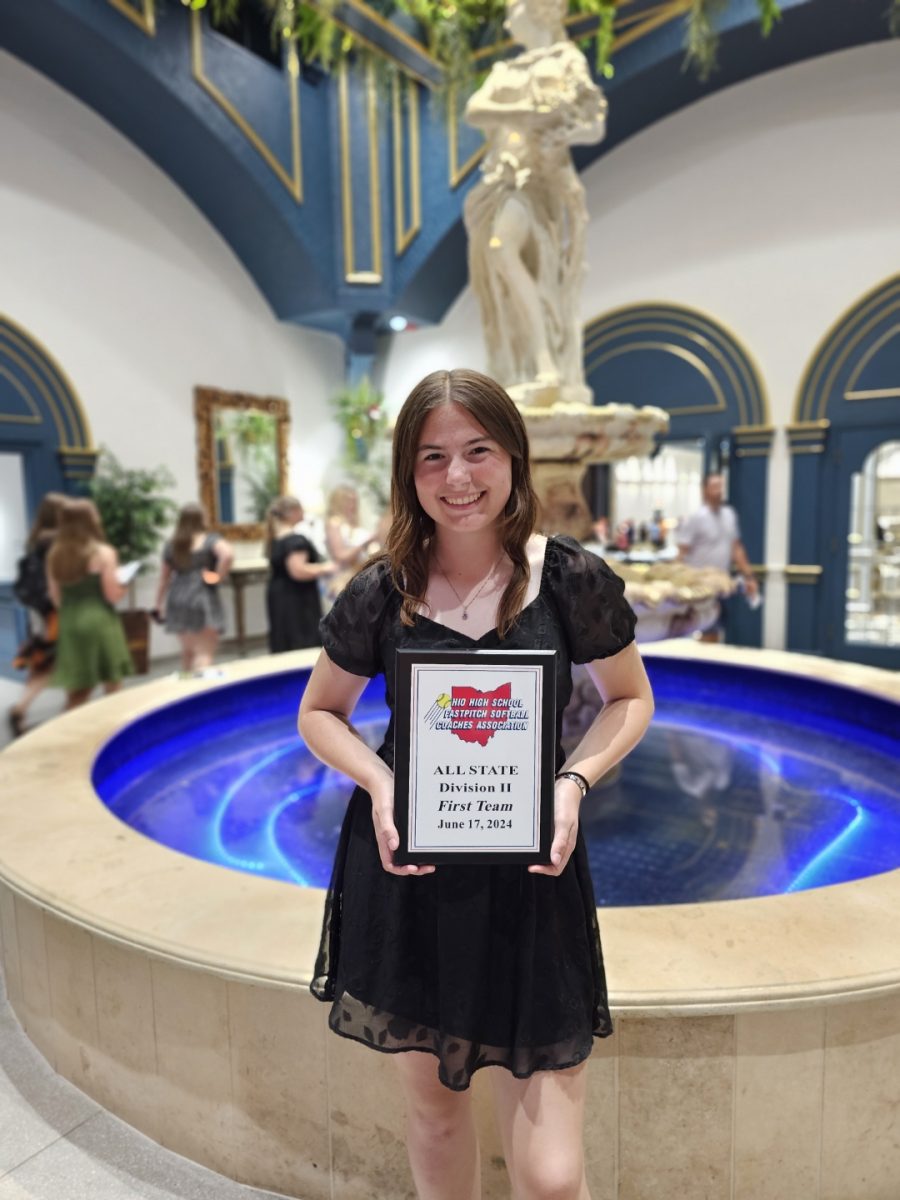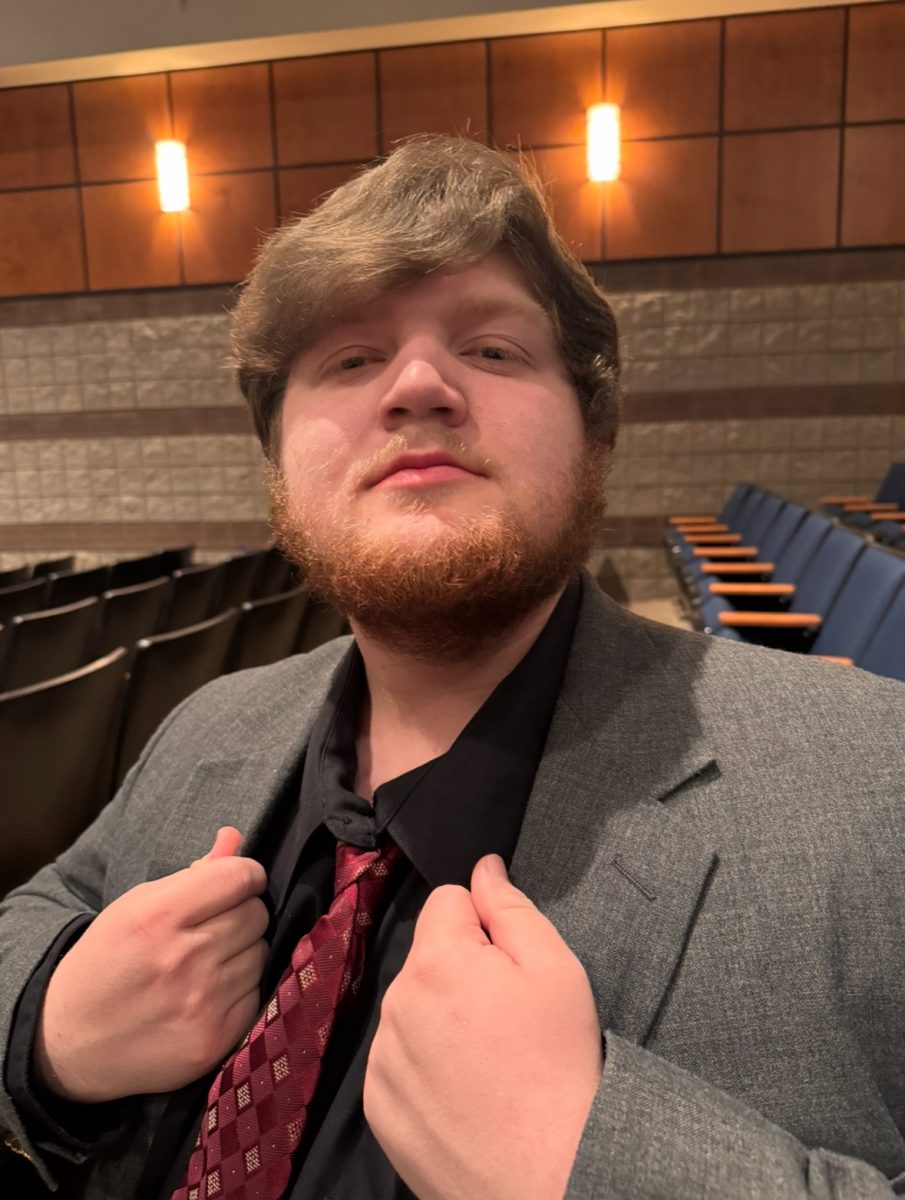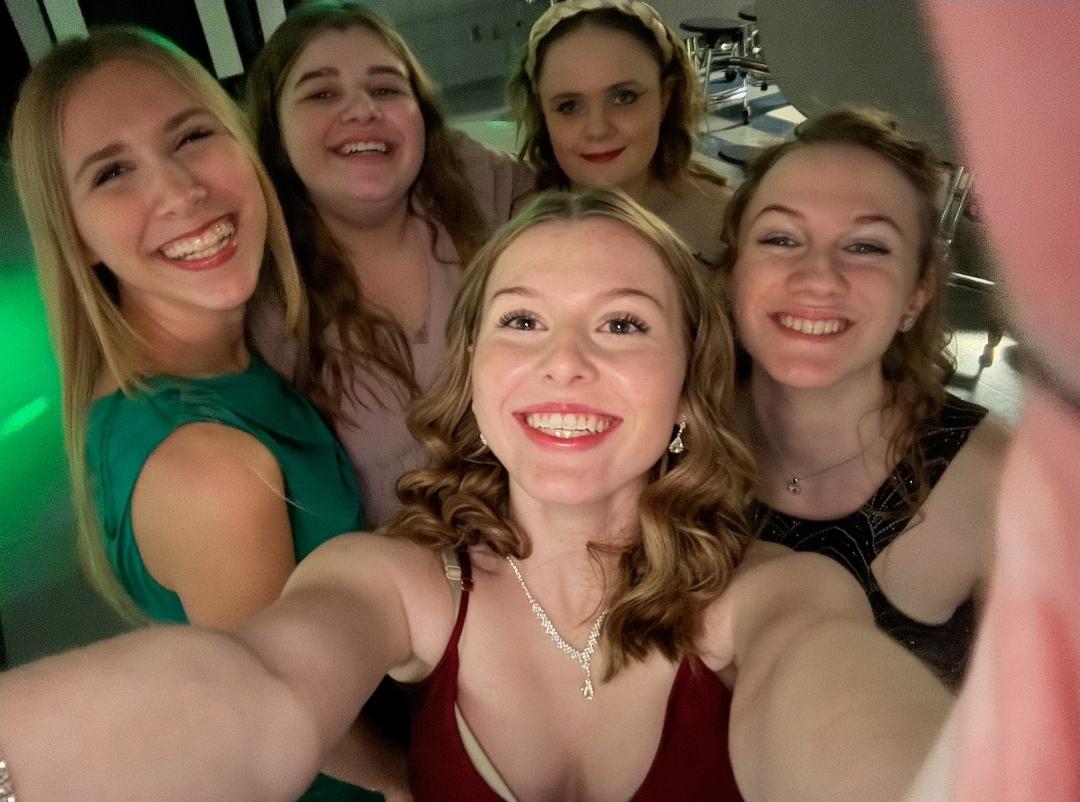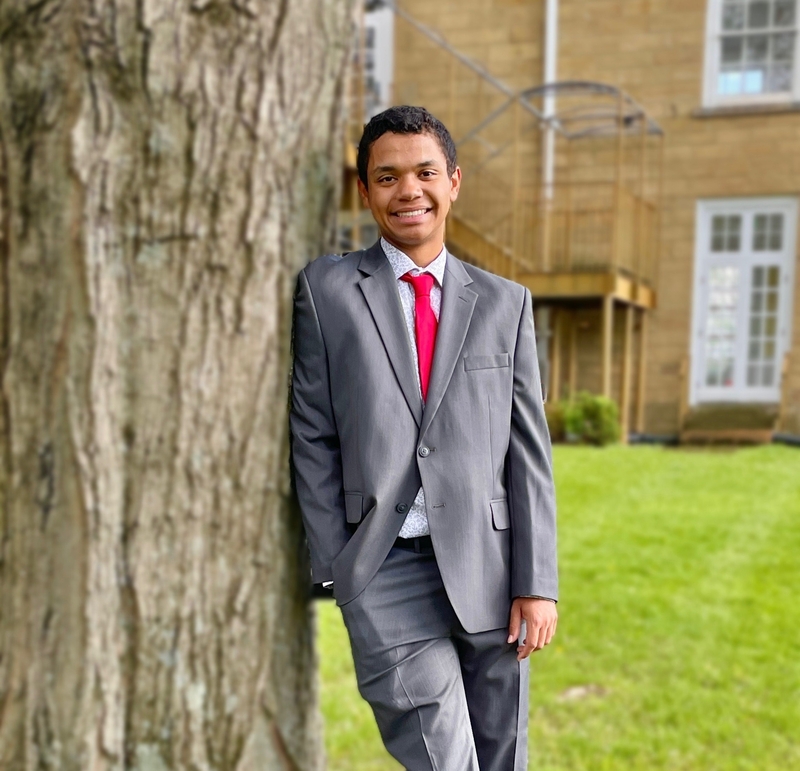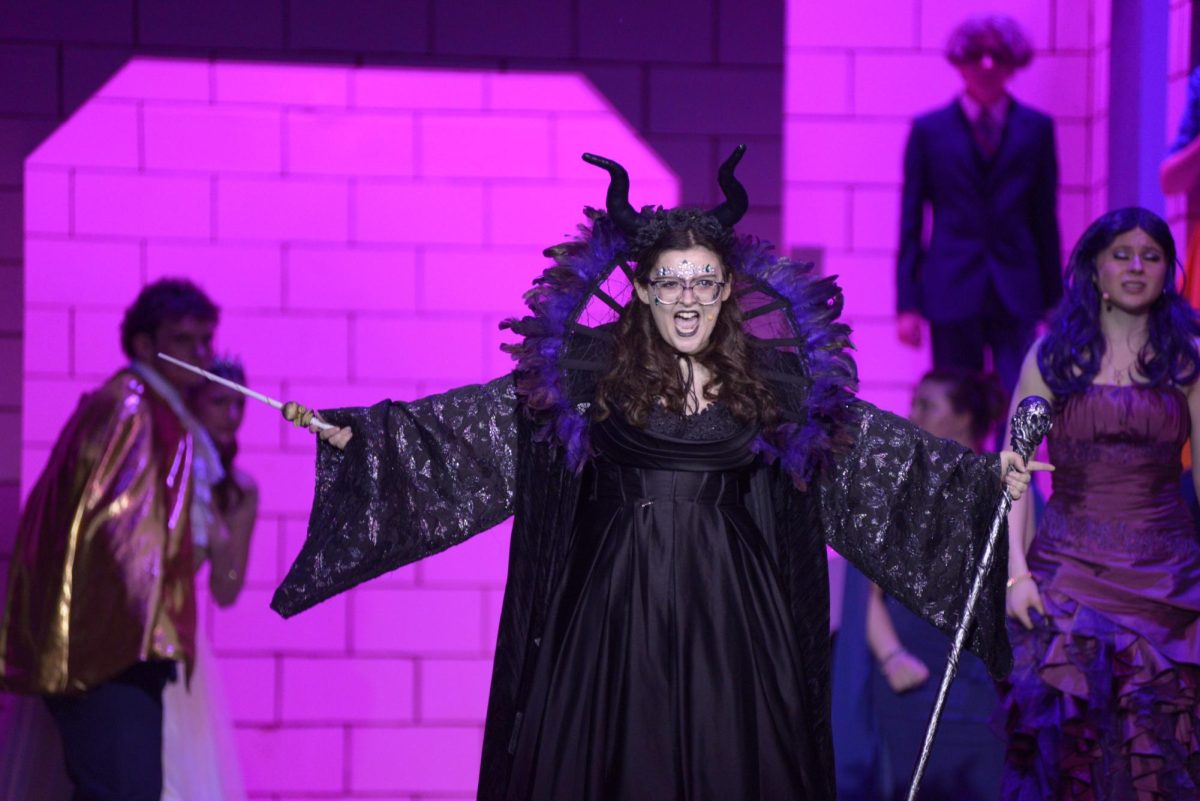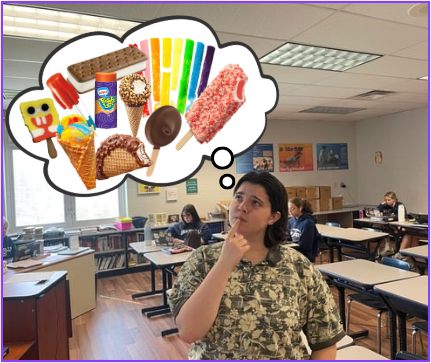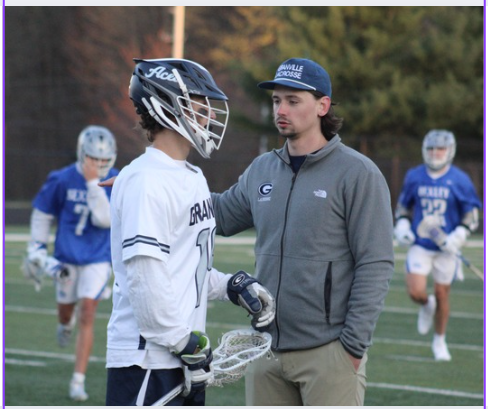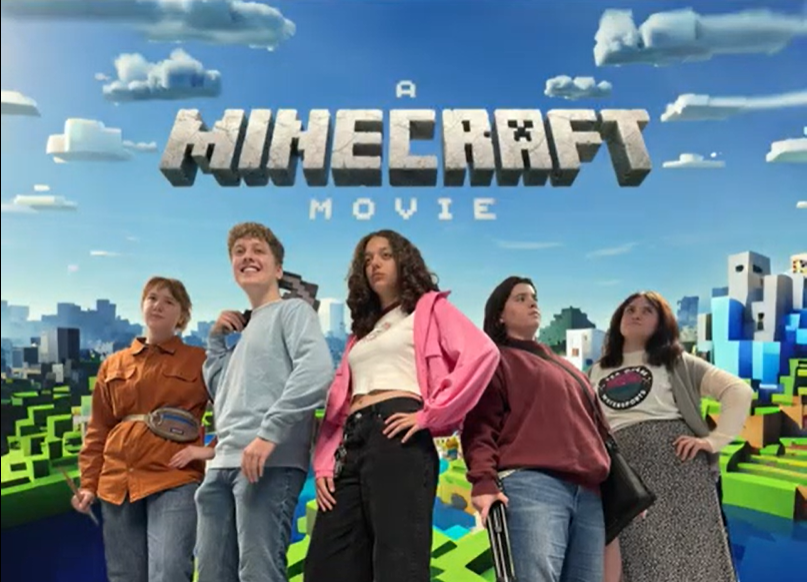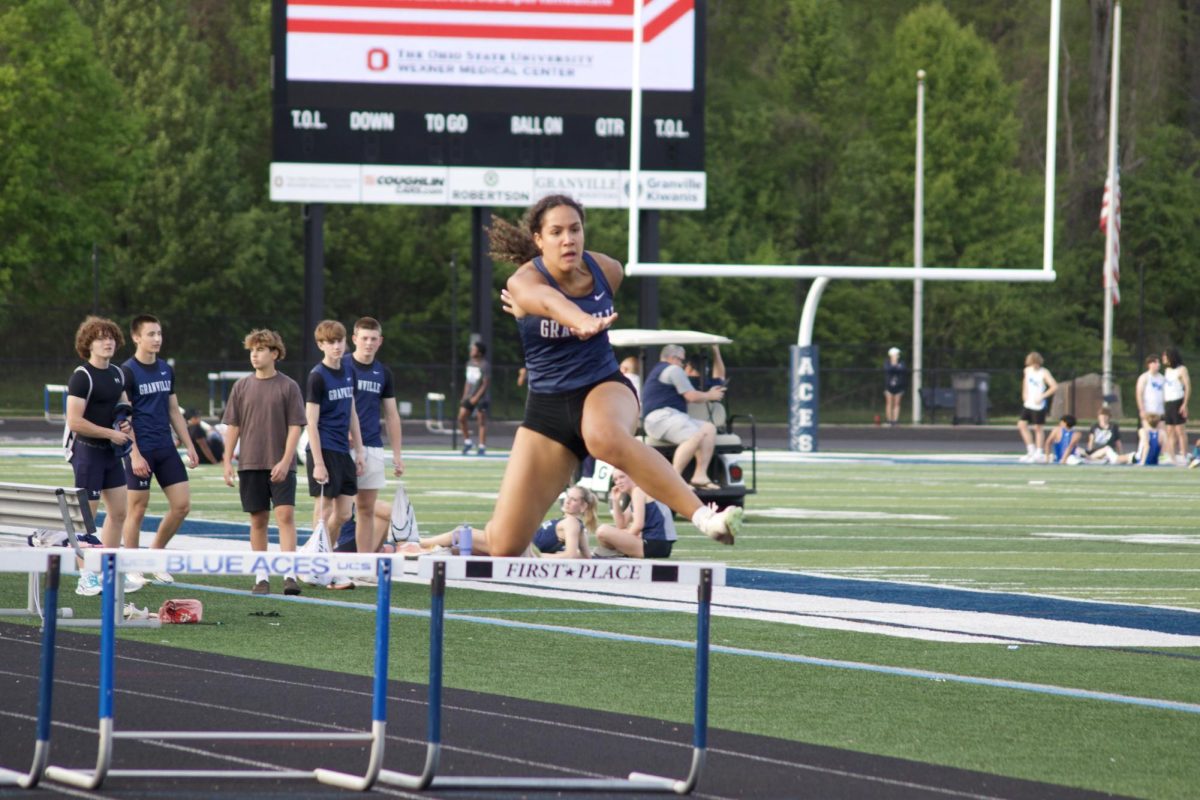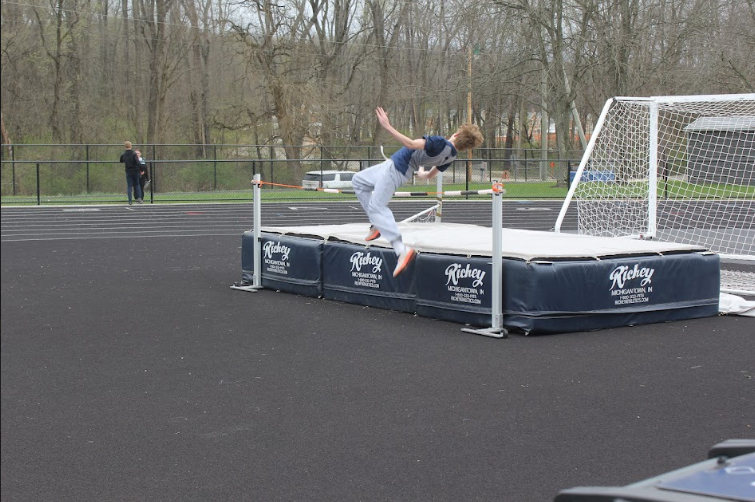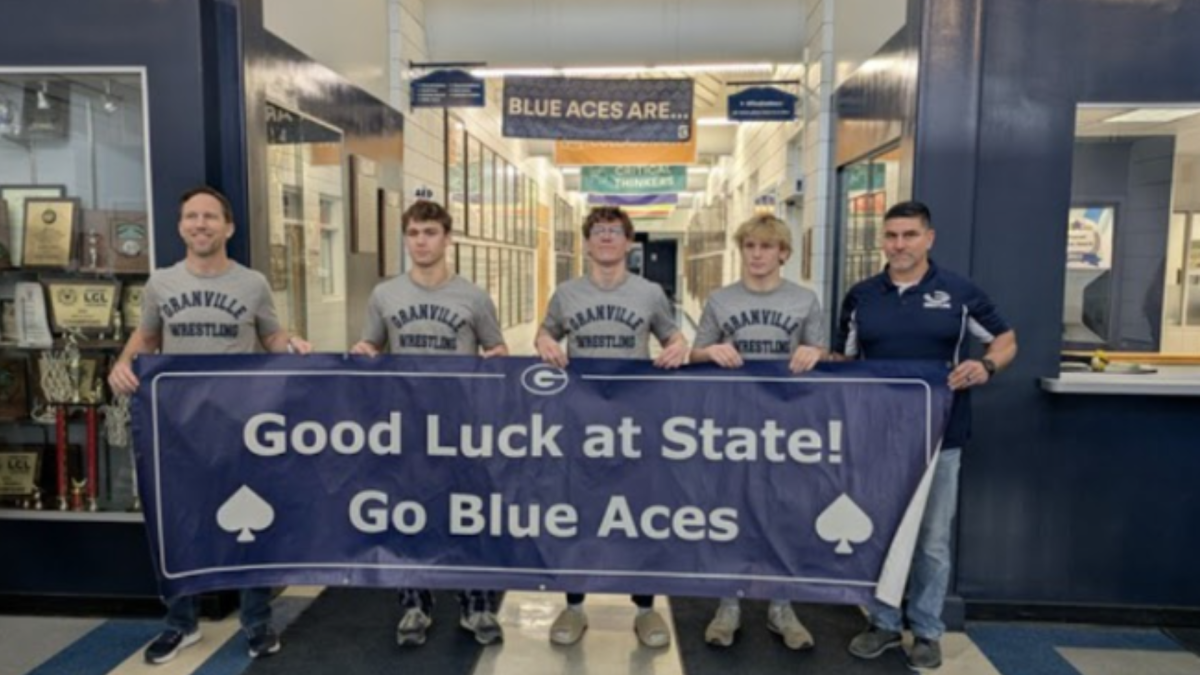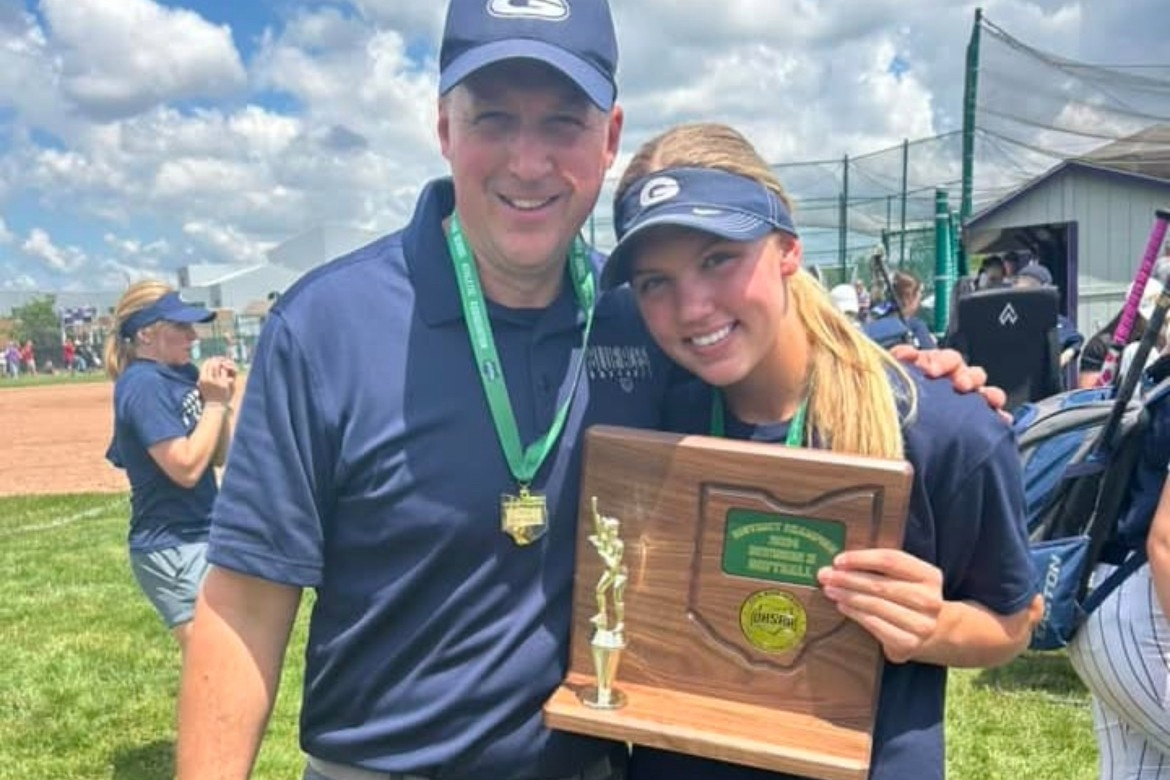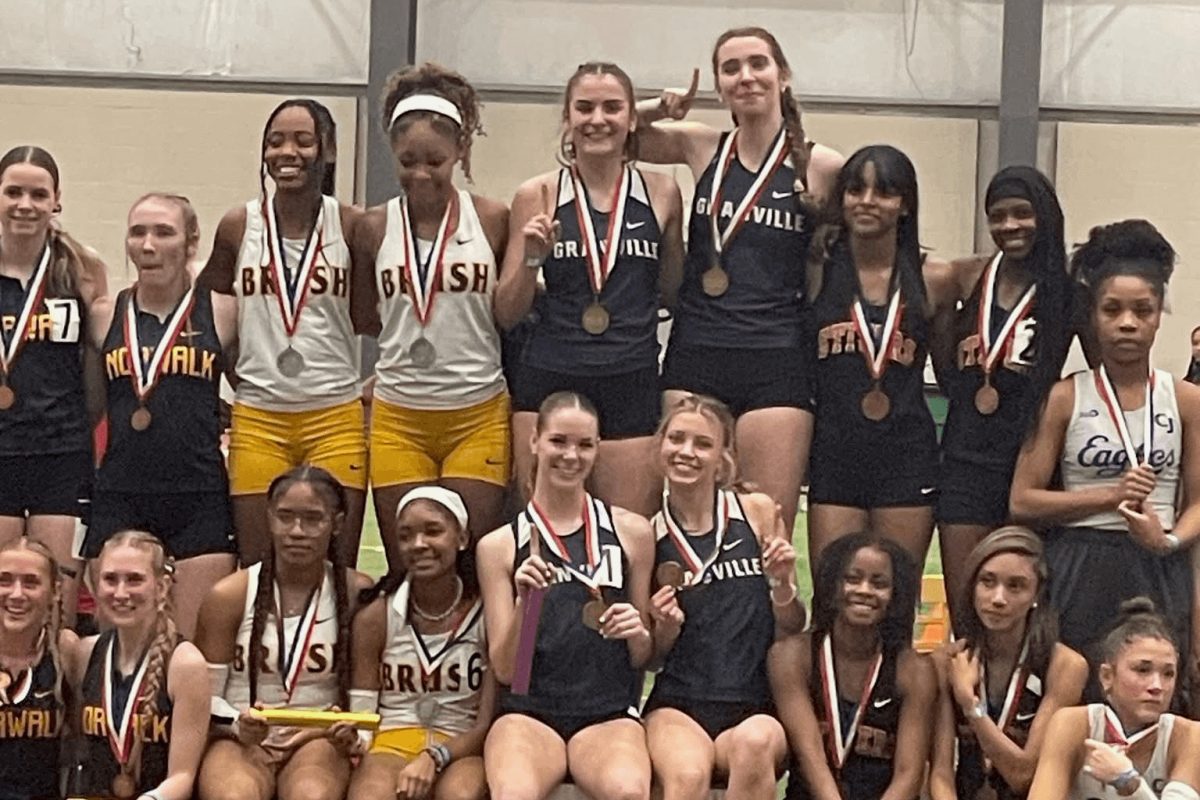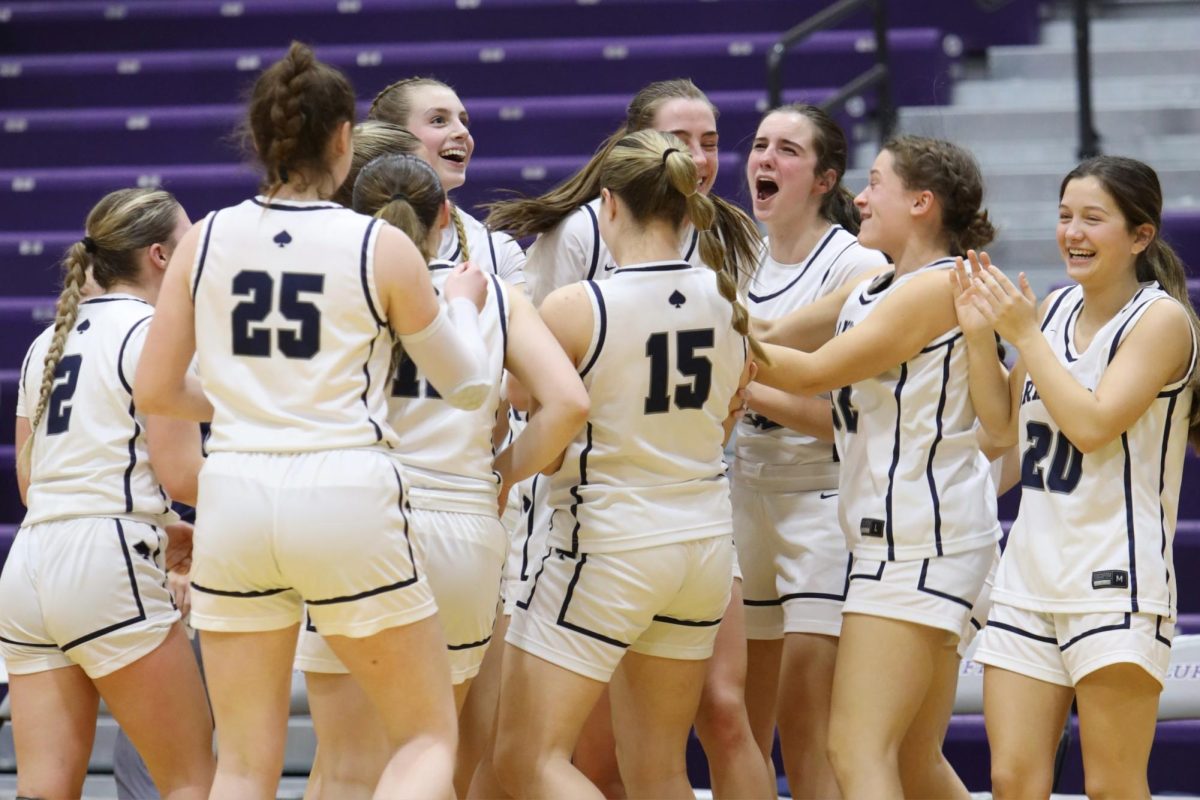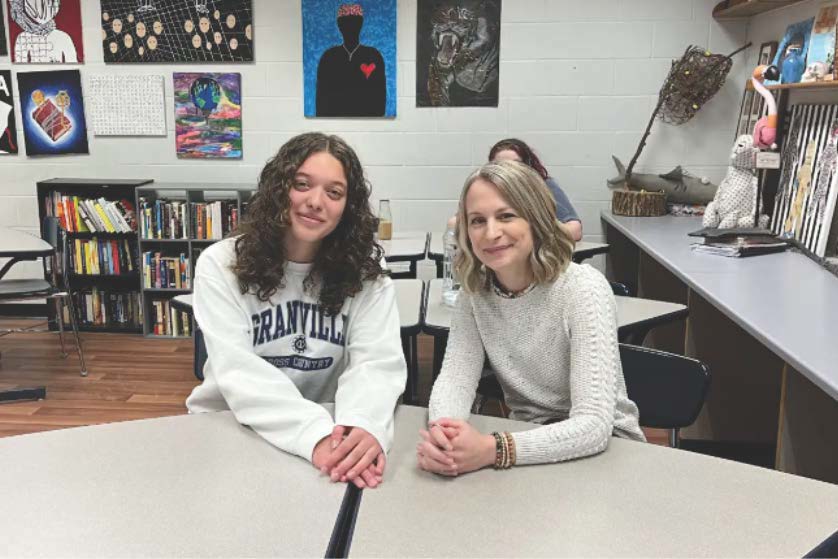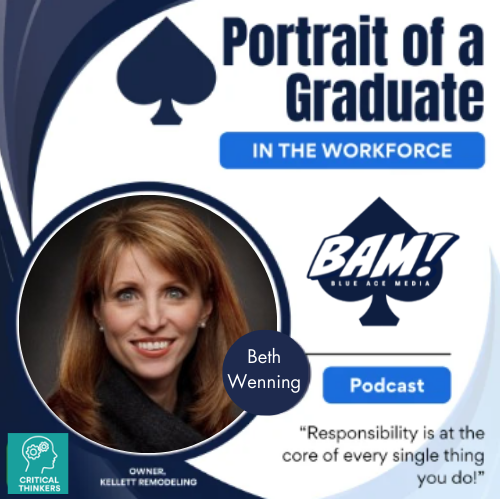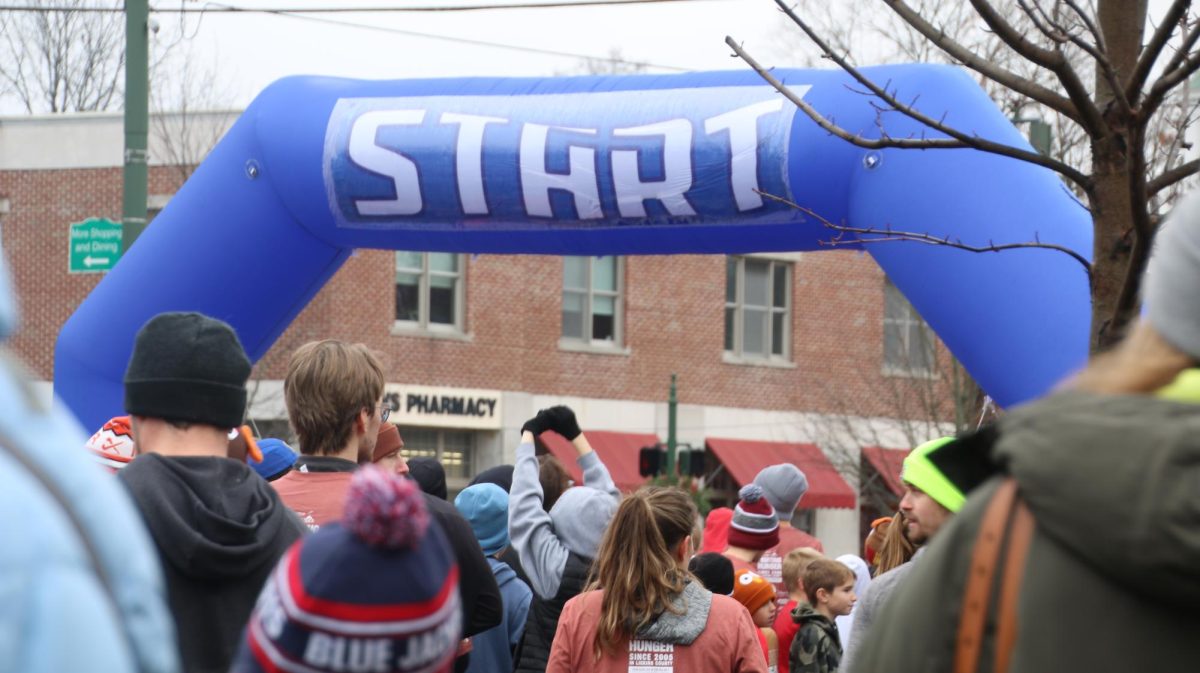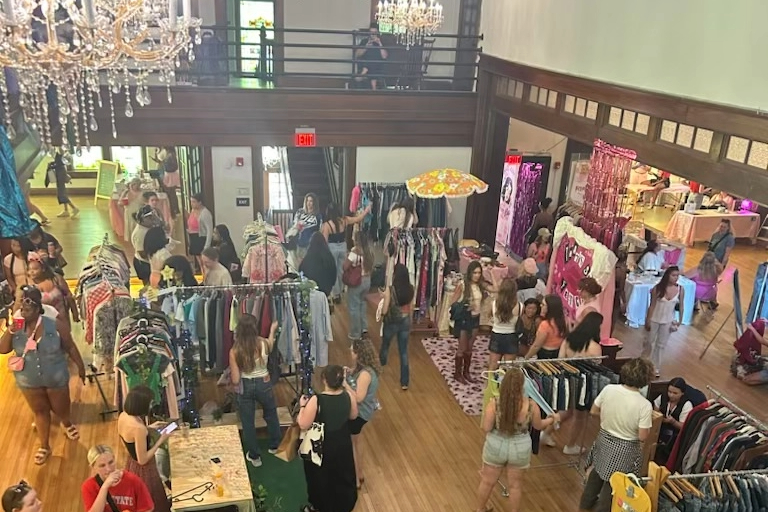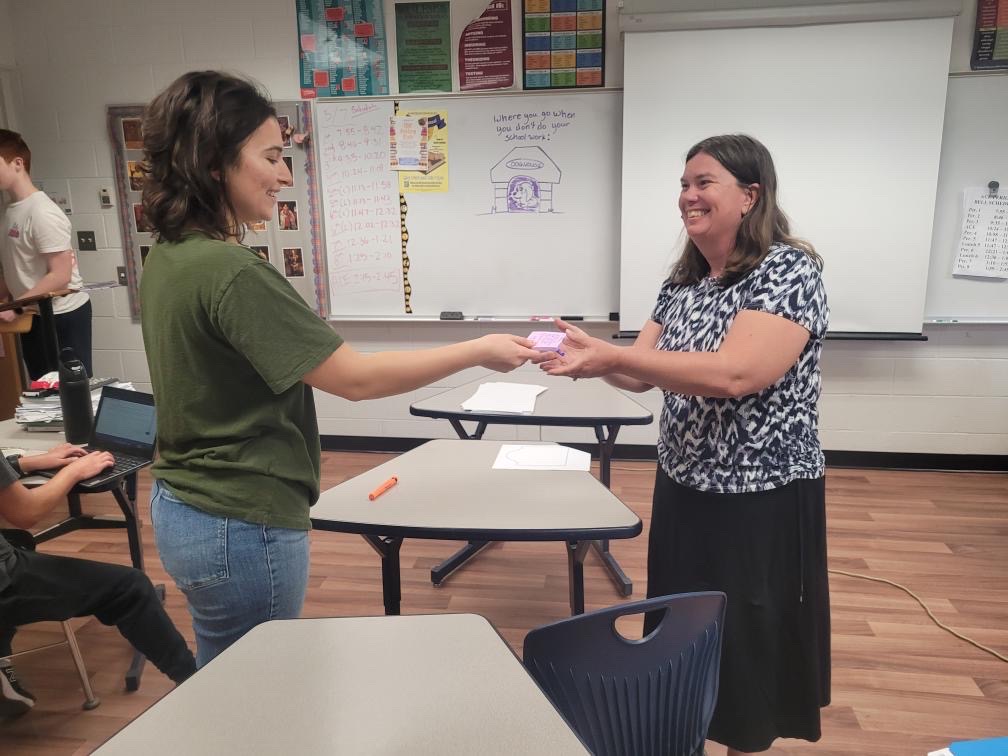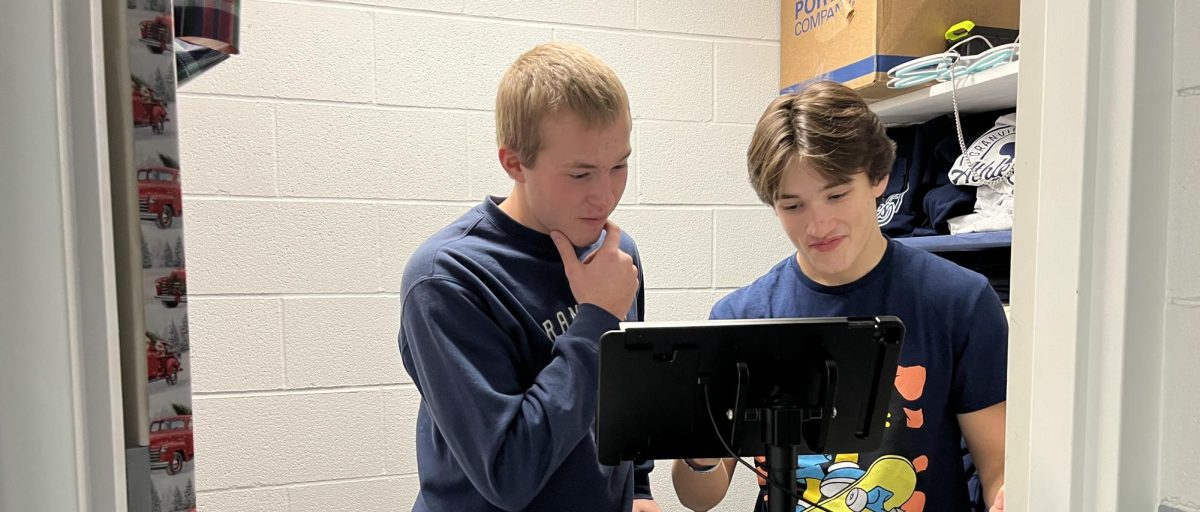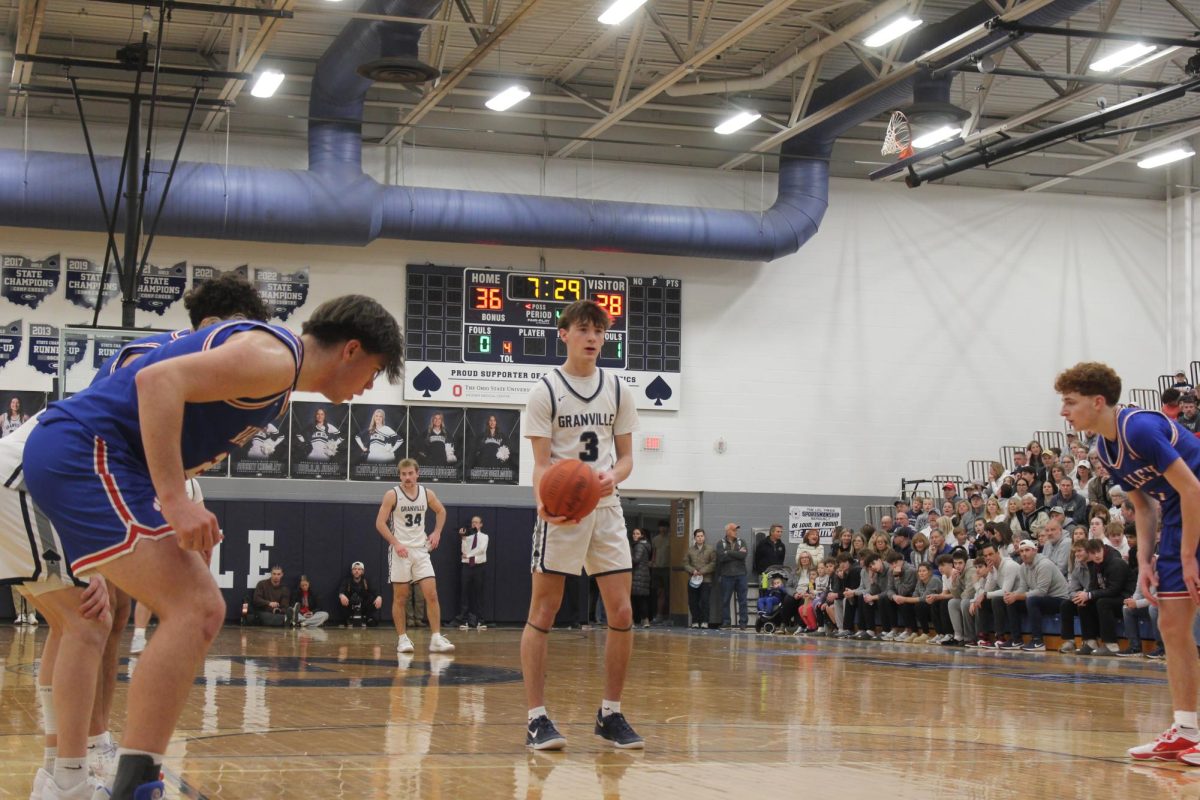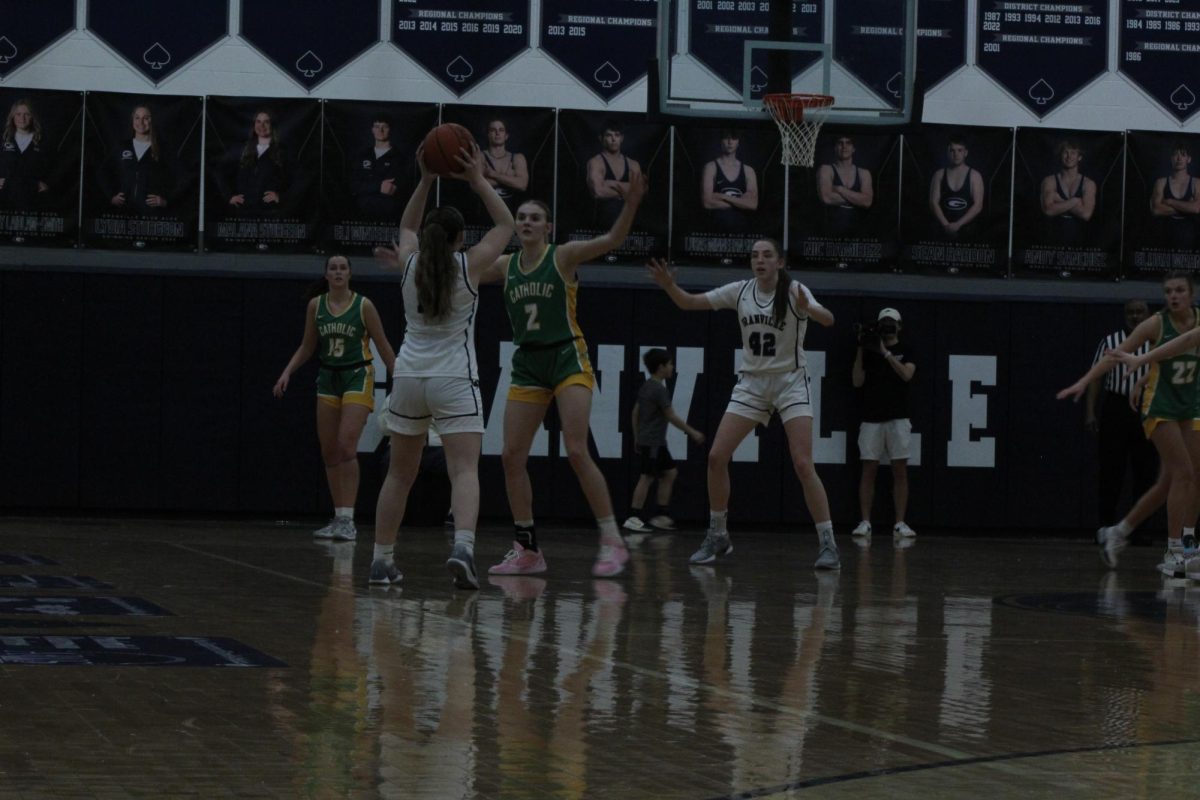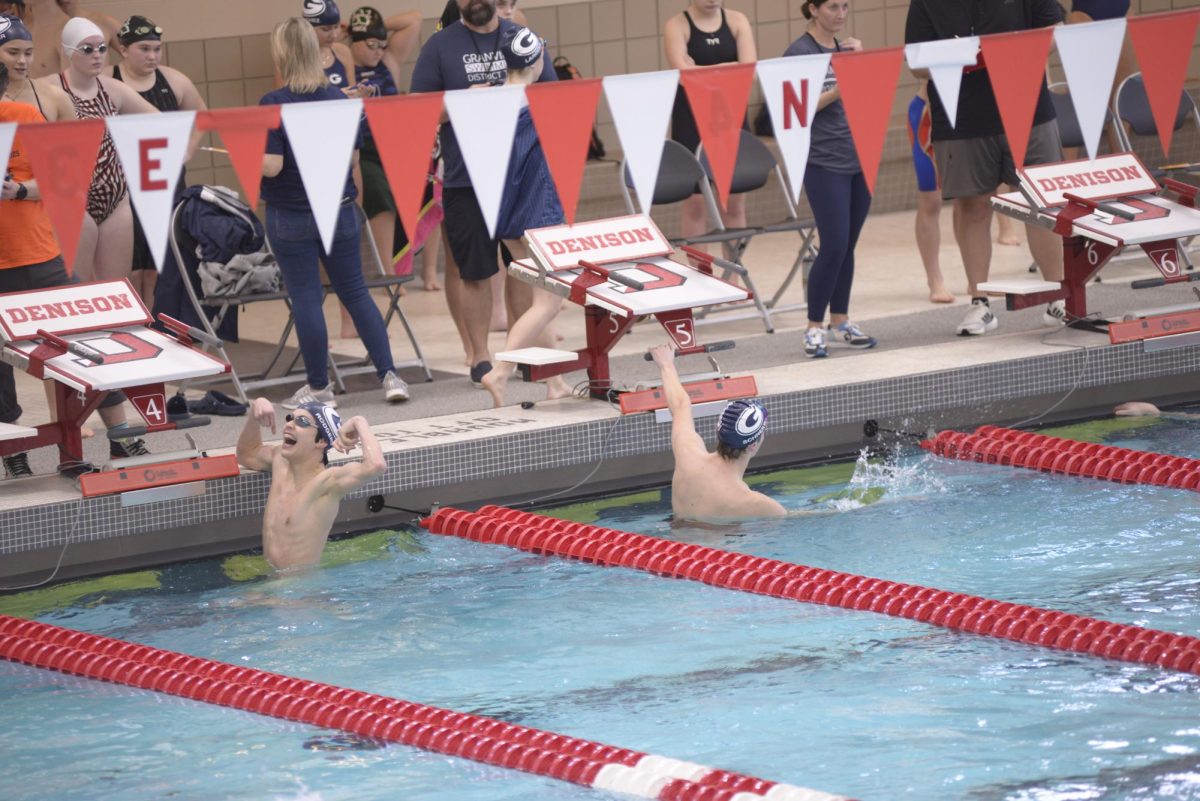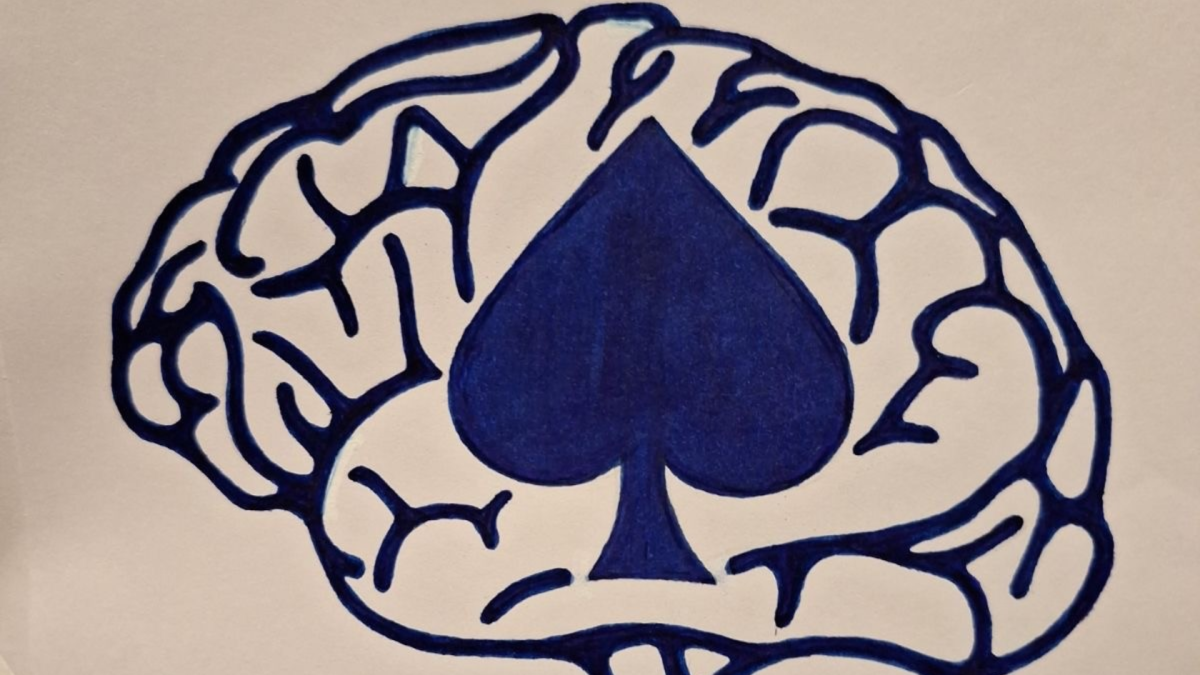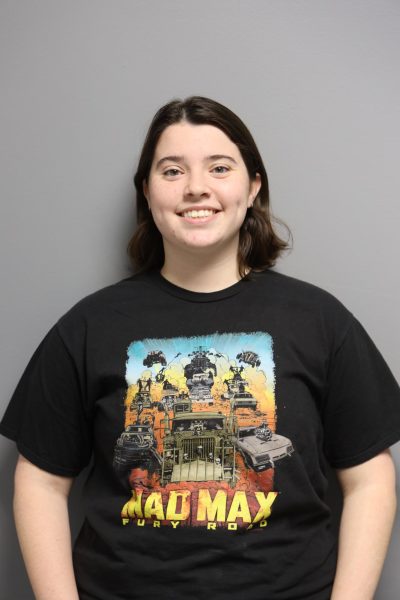The Science Olympiad team is going to states on April 26th after ranking 14th in the regional tournament. The key to their success is a balance of individual passion and group solidarity.
The competitions for Science Olympiad include a multitude of diverse events that fall underneath three categories. During study events, participants will prepare note cards to act as study guides during a comprehensive 50-minute test. Build events have students build contraptions beforehand and then test them on site, while lab events are experiments carried out during the competition.
The team’s passion for what they do is especially evident in sophomore Yingling Yang, who says she “instantly knew she loved it” after joining in seventh grade.
The competition has no divisions by school size, so Granville’s eight member team will often compete against schools with two or three times as many members. Their small size allows for democratic decision making.
“We’ve had a team as small as five members at one of the tournaments,” Yang said. “So we’re on the smaller side, but we have sort of taken it in stride. We are a very student-led team…at the start of the year, we choose all the tournaments we’re going to at the first meeting.”
Yang prepared for events in the regional competition centered on entomology and anatomy through meticulously creating and studying color-coded note-cards.
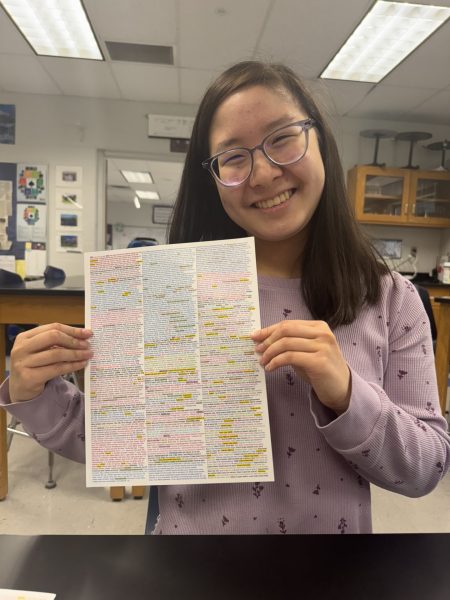
Sophomore Yingling Yang creates comprehensive note cards for study events.
“These are my pride and joy,” Yang said. “I spend a lot of time making it so everything is as concise as possible.” To prepare for study events, Yang memorizes as much as she can from the cards and then creates another version with more information.
“[Sophomore Abbie Graham and I] have a binder for entomology and a few guides,” Yang said. “We have a lot of information crammed in there, and then we have to answer questions like ‘what is this insect’ – questions about the life cycle, what the insect looks like, food function and the food web, that kind of thing.”
According to Lewis Kieffer, the team’s adviser, Science Olympiad can help students explore science outside of the limits of the American education system.
“People talk about the gap between the US science level and Asian countries,” Kieffer said. “I’d say that the people who do this are actually bridging the gap…when you do Science Olympiad, you have a chance to study [a specific science] every year.”
The relationships between team members and the diversity of events also fosters academic growth.
“When you have grades 9-12, [underclassmen] get mentored by the juniors and seniors and then when it’s their turn, they get a chance [to be mentors],” Kieffer said. “If there’s something in science that you’re really interested in and if there’s an event – since there’s 23 events, there’s a good chance there is – you can really get into that.”
Sophomore Abbie Graham and Senior Brady McKinney constructed miniature helicopters from a hobby kit to prepare for a regional event centered on aviation.
“‘Helicopter’ is a delightful or not delightful event, depending on who you ask,” Graham said. “You build a small wooden helicopter and you release it at hip height and you hope it flies forever!”
Students find different aspects of the experience most rewarding. Graham enjoys Science Olympiad because it allows for “thinking outside of the box” and hands-on learning. KcKinney loves the team atmosphere, fostered by long bus rides to faraway tournaments.
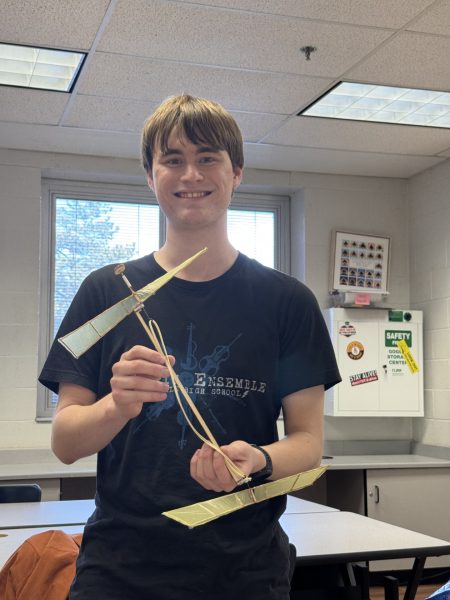
“There’s a strong sense of camaraderie,” McKinney said. “It’s real fun. We’re having a good time together and getting into the weirdest shenanigans.”
In the competitions, McKinney also enjoys the variety of different events that students can participate in.
“I flew a helicopter and mixed chemicals and took a test on fossils all on the same day,” McKinney said.
The skills that McKinney honed on the team have also helped him in everyday situations.
“You learn how to think critically,” McKinney said. “You learn good test taking skills, which really helped me on the ACT.”
Students often find the teams helps them determine where to take their future.
“So Science Olympiad really sets you up for a career,” said Graham. “Science Olympiad helped get [former student Luke Hann] into computer programming and that’s now what he’s, peripherally, pursuing in college. Notably he’s going to school at…Carnegie Mellon”.
Similarly, Isabella Rodgers, another former student and Science Olympiad member, is currently attending medical school after discovering a passion for anatomy.
McKinney has found career opportunities as well because of his involvement with Science Olympiad.
“Largely because of Science Olympiad,” said McKinney, “and the way it set me up for success in school and in my extracurricular activities, the Department of Defense is willing to offer me a scholarship to study aerospace engineering”.
Joining Science Olympiad, however, doesn’t require participants to be particularly proficient in scientific subjects.
“When I [ask] someone if they were interested in Science Olympiad, the overwhelming response is ‘I’m not smart enough’,” said McKinney. “No one is ever ‘smart enough’…we’re not looking for geniuses…you just need to show up and do the work.”

